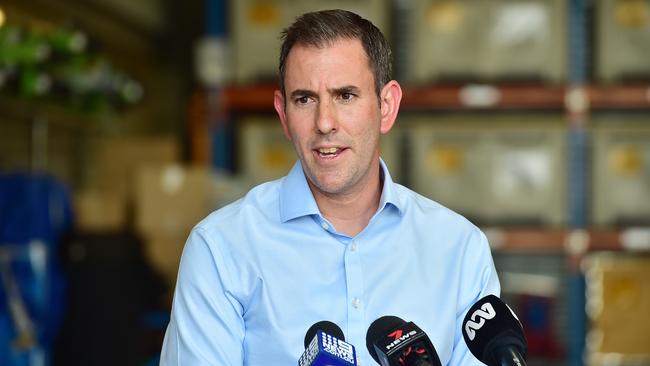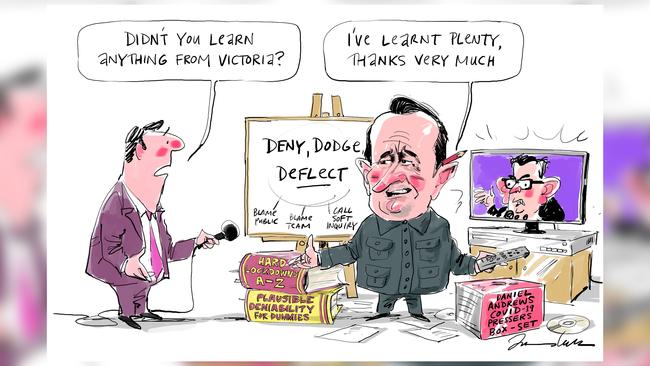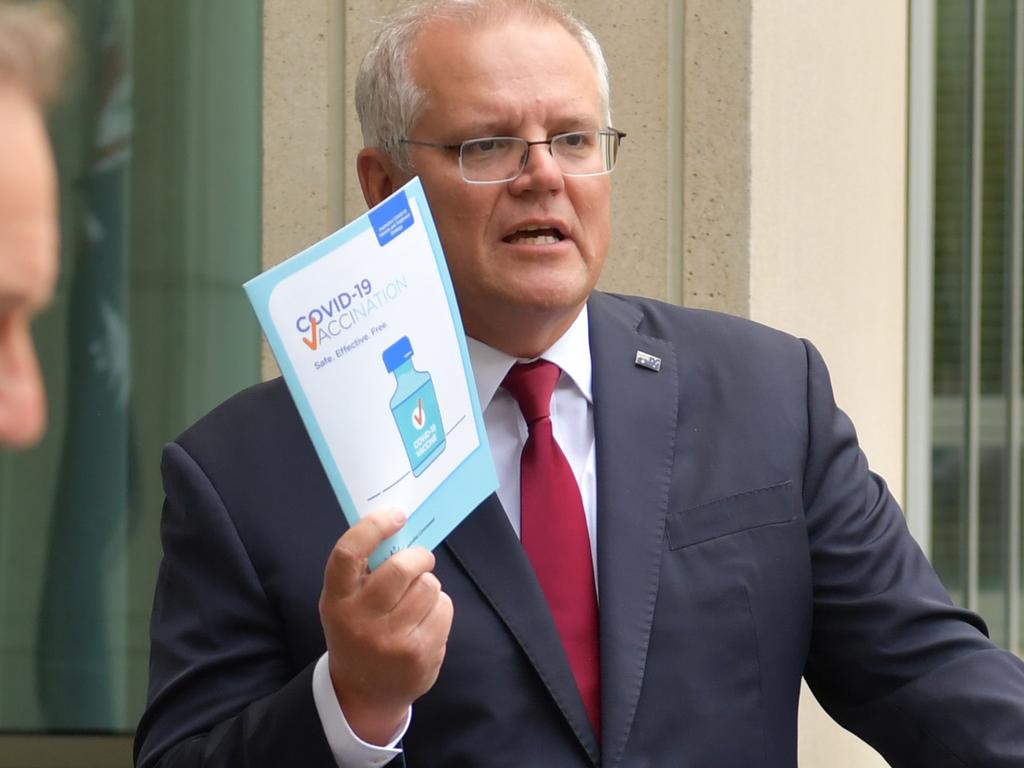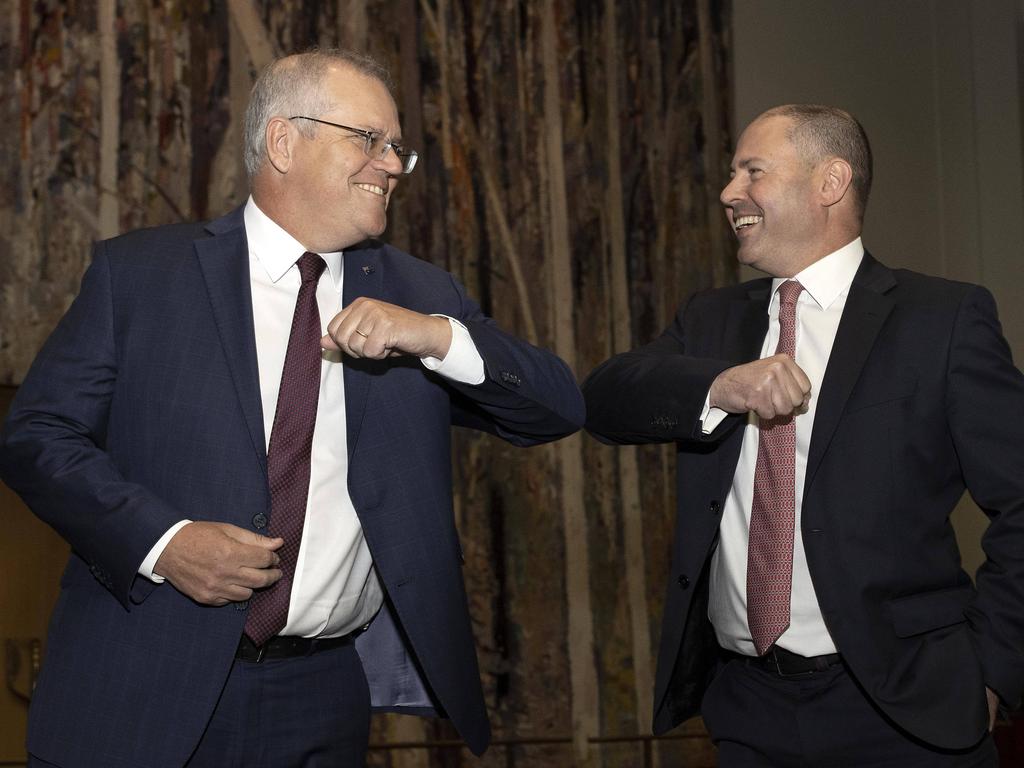
The willingness of governments to claim success when infection and death rates head in favourable directions but to steer clear of taking responsibility if things go south is bound up in the pretence that governments can precisely control the outcome of this disease.
The fact there may be large dollops of luck determining outcomes is a point rarely conceded.
Creighton’s discussion illustrates a broader point about the increasing tendency of governments to think they can determine all sorts of outcomes, including economic and social ones (even weather events), if only the correct set of policies are put in place. Friedrich von Hayek had another term for the same phenomenon: the fatal conceit, which he used to critique the errors of socialism.
Several problems arise from this misplaced sense of omnipotence on the part of governments. The reality is that some (most?) economic and social outcomes simply cannot be altered substantively by government actions; those changes that do occur are seldom achieved in a cost-effective way; and there are almost always unintended consequences associated with interventions.
If this all sounds a tad dry, it’s worth illustrating the points by reference to some examples, including the distortions being imposed on public sector processes that have led to close to disastrous outcomes.
Taking up a fad dreamt up in New Zealand, the Victorian government increasingly has organised its public sector activity around accomplishing missions. None of that boring specification of the roles of particular departments and accountability to the relevant minister. It’s now about outlining missions, lashing together public servants from different departments and getting on with it. In theory, these proactive teams are accountable to the Premier, but in practice they are not accountable to anyone.

Early last year, Department of Premier and Cabinet secretary Chris Eccles — he resigned in the wake of the state’s hotel quarantine fiasco — announced “the significant reorientation of the public service”. Eight core missions were nominated. There is even a missions co-ordination committee as well as a mission co-ordination unit.
If this is doing your head in, you are not alone. Where the Department of Health, for instance, had several clear roles, including in relation to public health, it is now caught up in fulfilling missions. Is it any wonder that the Victorian government’s response to COVID-19 has been so poor, to the point of it being unable even to establish who was responsible for some fateful decisions? When all the senior public servants are off attempting to fulfil missions, the bread-and-butter activities of departments — activities the public relies on — tend to fall away.
But the mission thing is popular with many governments and government agencies.
The International Monetary Fund has a narrow role in ensuring the stability of the international monetary system. But its mission has exploded in recent years, with mission creep being common in government agencies.
It now wants to impose “smarter fiscal policies that can reduce inequality by striking the right balance between growth, debt sustainability and social protection”. These days, it’s about inclusive growth, “appropriately calibrated structural reforms” to boost productivity, tackle corruption, climate change, technological change and reforming international trade rules. It’s hard to think of an economic or social policy area the IMF doesn’t regard as worthy of its advice or interference.
The Closing the Gap policy of the Australian government is another example, albeit a tragic one, of the illusion of control on the part of governments. It has been around for some time, with the ostensible objective of removing Indigenous disadvantage.

There have been several modifications but the core of the exercise has remained essentially the same: to close the gap between Indigenous and non-Indigenous members of the community on several key economic and social measures. These include child mortality, school attendance, literacy and numeracy, employment, life expectancy and Year 12 attainment.
While the policy is well-intentioned, there are some fundamental problems with the approach. There is an assumption that government interventions and funding can entirely remove the gaps without there being any perverse effects on the incentives for people to achieve better outcomes off their own bat.
There is also scant recognition of the challenges faced by Indigenous people living in remote communities compared with other Indigenous people. A recent report by the Centre for Independent Studies has demonstrated the intractable nature of these challenges. It may make sense for an Indigenous person living in Brisbane to complete Year 12; it makes much less sense for an Indigenous person living in Hermannsburg or Utopia.
Just in case you still believe in that trite aphorism that “what gets measured gets managed”, in the public sector what gets measured gets gamed. This is another problem with the Closing the Gap approach and is rife throughout the public sector. Think of public hospital waiting lists and the manipulation of the figures.
In theory, a government might be constrained in pursuing the illusion of control by a responsible and guarded opposition. You know the sort of thing: governments shouldn’t be micromanaging people’s lives; people generally do best if governments keep out of their way; there are limits to what governments can achieve when it comes to the economy; high taxes and excessive regulation need to be avoided.
Sadly, in Australia, the Labor opposition is even more captured by the illusion of control than the Coalition government.
Just last week, opposition Treasury spokesman Jim Chalmers wrote an execrable piece for this newspaper; he even used the term mission. Full of cliches, he claimed that we needed to “build a more diverse and innovative economy”. Better education and care, cheaper and cleaner energy, the revitalising of manufacturing in the regions and making Australia more secure were all on his list.
In Chalmers’s world, “we can and should be ambitious about making the economy stronger after the pandemic and ensuring it delivers for Australians in every corner of the country”. Evidently, that’s “mission accomplished”.
In fact, we would be better off if politicians became humble in their approach to governing. And public servants should just stick to fulfilling the narrow tasks they are assigned as diligently and efficiently as possible. No one should believe governments can solve all our problems. The costs of trying to do so are immense, the loss of liberty is substantial and failures are only too obvious.







Last week economics editor Adam Creighton used “the illusion of control”, a term associated with psychologist Ellen Langer, to explain the efforts of governments to manage COVID-19.